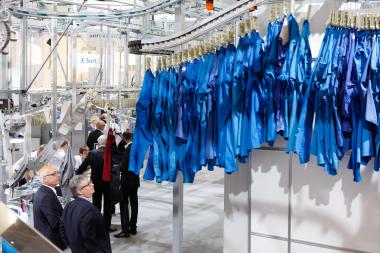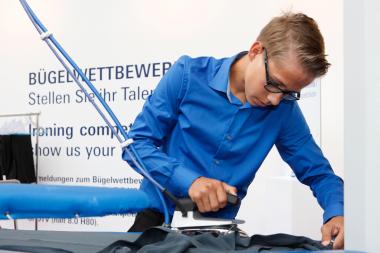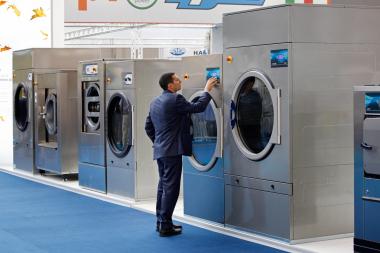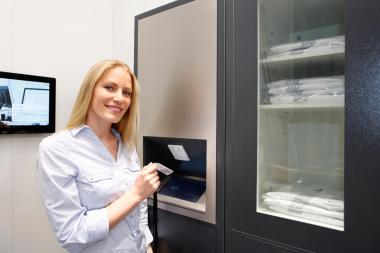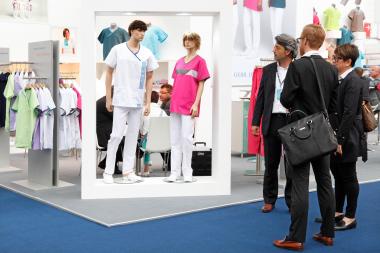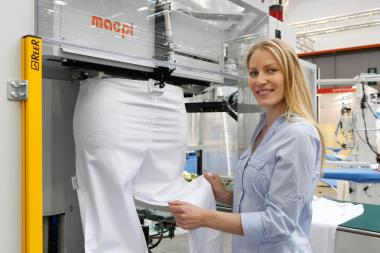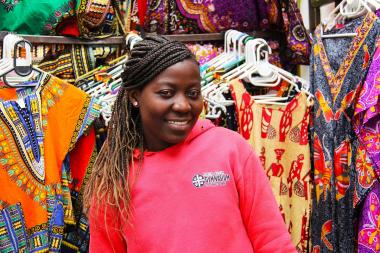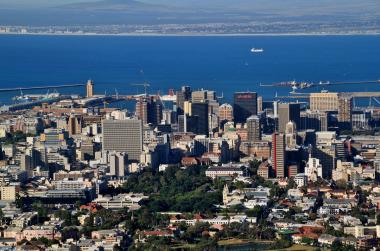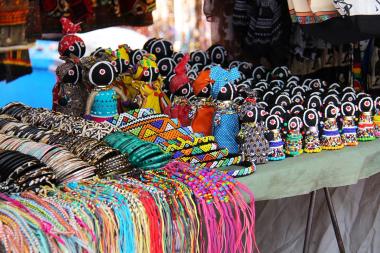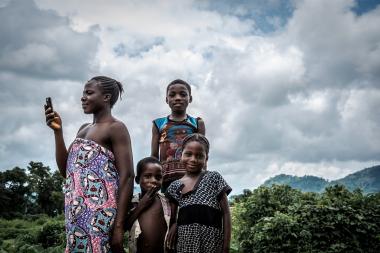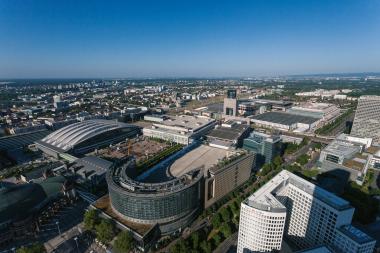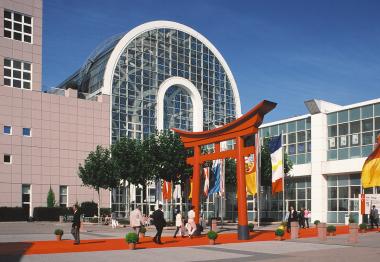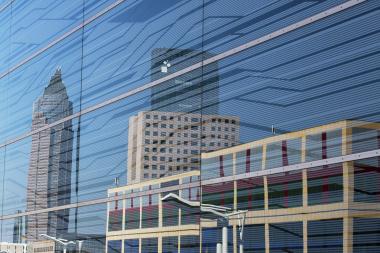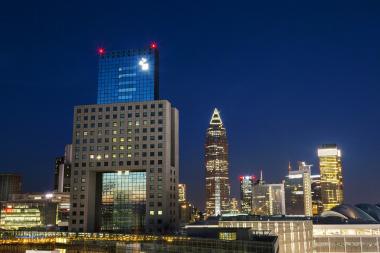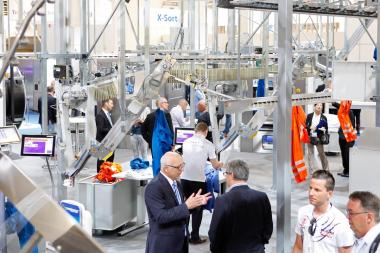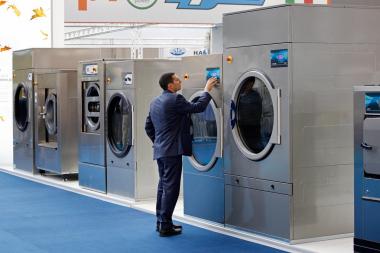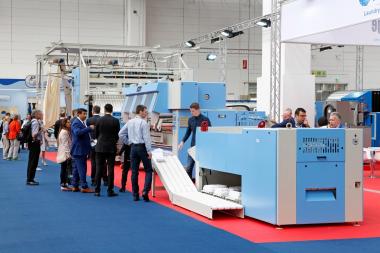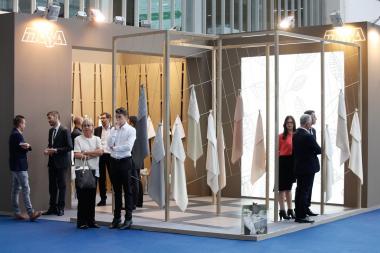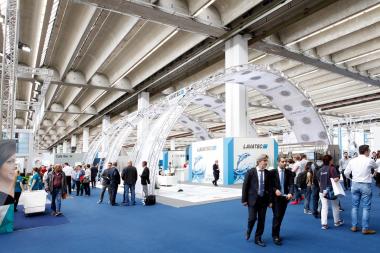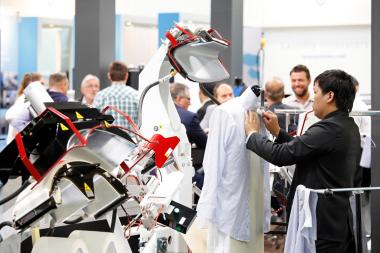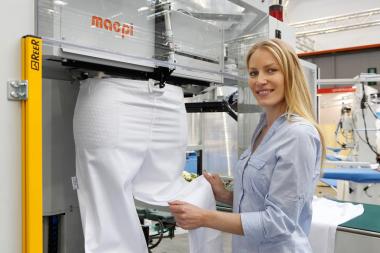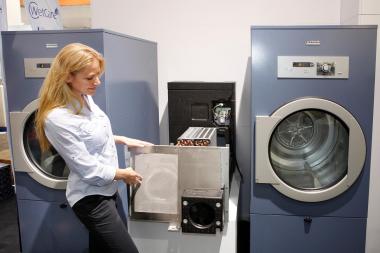Textile Services Industry a key to providing sustainable solutions and eco-friendly best practice
How can the major sustainability challenges in the textile industry be met? The textile services industry, whose business model has always been based on durability and re-use, has an important role to play here as ambassador. In the run-up to Texcare International, Elena Lai, Secretary General European Textile Services Association (ETSA), talks about these challenges and her expectations for Texcare International from 27 November to 1 December 2021.
The textile sector was identified as a priority sector in the European Green Deal and in the Circular Economy Action Plan. What are the implications for the European textile services industry?
Elena Lai: We are in a truly historic and exciting time for the textile services industry. We are all well-aware that our industry is the key to providing sustainable solutions and ecofriendly best practice. We had a series of webinars at ETSA dedicated to sustainability and circular economy being key elements of the Green Deal and our larger companies such as industrial laundries, key textile manufacturers and innovative machinery companies, are all up to the task and providing effective solutions. Our national associations too, members of ETSA, are all working synergistically to exchange their best ways forward, in Europe and beyond as we have also partners from the US. These efforts within ETSA’s value chain make us really proud and eager to go the extra mile, guiding our members also towards those areas which seem to be the most challenging. For instance, the new EU Climate Law, which calls for 55% CO2 reductions by 2030: this means that European industries will all have to do better to make us reach these targets in less than nine years. We know ETSA could represent the right network to identify the best way forward on this issue and truly perform and deliver what the EU is advocating for.
How can the textile services industry contribute to achieving circular economy in the textile industry?
Elena Lai: The business model of textile services is inherently circular. By having a business model which is focused on renting and reusing textiles we can see a litany of benefits that it can offer to the EU’s Circular Economy Action Plan. Firstly, in renting textiles. Through rented textile services, textile service companies can extend the lifecycle of products and thus reduce the amount of production that is necessary to occur in the first place, while also reducing the amount of wastewater and energy needed in the laundry process. Secondly, through re-use and repair textile products can remain in consumer hands for longer, which is paramount as our industry is one that battles against planned obsolescence. Both of these are important pillars to our industries that will help both consumers and the planet. Lastly, by continuing to expand recycling and upcycling we can minimise waste, ensuring that a product stays inside the European economy as long as possible. These are all important steps and help us do our part to help Europe reach its emissions and sustainability goals.
Textile recycling is a very important point. How do you think the textile recycling rate can be increased?
Elena Lai: The Commission will mandate separate waste sorting of textiles by the year 2025, thus recycling, upcycling and end of life re-use must be improved. A ban on the burning of unused textiles will also soon take effect, this will incentivise further recycling and waste reduction. Fundamentally what we in textiles services need to do is to continue to reduce, re-use and recycle. We can increase the rate of recycling by making consumers aware of rented textiles and textile services so to increase the public demand for such services.
How can sustainability in textile services be further improved?
Elena Lai: In order to boost sustainability in our industry we need to build on the existing culture of innovation and entrepreneurship where exciting, new, out-of-the-box ideas can be developed and refined. EU programs like Horizon Europe, which emphasise green and digital solutions to common problems are an excellent way to empower citizens, textile service firms and local communities to take the initiative and take matters into their own hands. The EU’s Due Diligence legislation is one example of somewhere we can see both consumers and firms come together and take proactive action to improve sustainability, not only in textiles and textile services, but in European industry more broadly. To put it clearly, we have to strengthen our technological innovation while also empowering consumers, authorities and textile service firms, we believe our work at the EU level helps to make this a reality.
How does ETSA promote new projects in the field of sustainability?
Elena Lai: We at ETSA have been hard at work lobbying EU policymakers for responsible legislation, while also spreading awareness of the industry’s best practice to the public. Recently ETSA has also become an EU Commission Climate Pact Ambassador. This is an exciting opportunity which will allow ETSA to work closely with European Institutions to inform and inspire real climate action amongst our members, national associations and the industry as a whole. ETSA is a platform where stakeholders, citizens, industries and European Union representatives can come together and have a dialogue on the best ways to improve Europe’s sustainability. Furthermore, we have been hard at work disseminating information on the best practice that will help Europe get to 55% emissions reductions, as well information on chemicals, waste-water, microplastics and other salient environmental issues. Our work is far from being done but we look forward to continuing to strive and advance via our focused Working Group on Environment and our webinars to make the world green and sustainable again.
What role will circular economy/sustainability play at Texcare?
Elena Lai: A central role, several European and World Leaders have underlined, is that Climate Change is the most important issue of our time and it is imperative we act now. Climate Change is also an issue with a global spill over and therefore we all have a clear incentive to find solutions and work in synergy with each other. We need future-oriented dialogue which understands the urgent need for sustainability across the entire textile value chain. ETSA in synergy with one of our members, DTV, is working hard to put together a panel at Texcare dedicated to the sustainability debate, with lots of members and participants to get engaged.
What does ETSA expect from this year's Texcare?
Elena Lai: We at ETSA are excited to be at Texcare, we think it’s a great opportunity to not only network and converse with other relevant actors in the industry but also to share best practice, concerns and most of all opportunities. Due to the pandemic we had a difficult year 2021 and this event will really enhance a stronger engagement of key actors in this sector. The need for green, sustainable and digital solutions is nonetheless imperative. We are looking forward to hearing of ways that the industry across the world not only continues to adapt to the evolving COVID situation, but also how it is embracing the green and digital transition that has been emphasised as being the futuristic approach by our EU policymakers. We at ETSA wholeheartedly look forward to this event.
Texcare International will take place from November 27 December 1, 2021 in Frankfurt am Main.
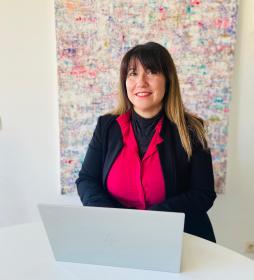 Elena Lai, Secretary General European Tex-tile Services Association (ETSA), (c) ETSA
Elena Lai, Secretary General European Tex-tile Services Association (ETSA), (c) ETSA
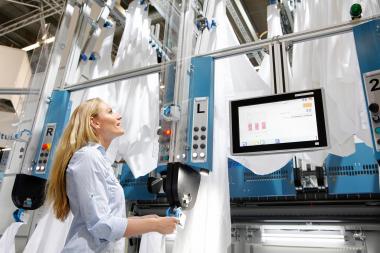 (c) Messe Frankfurt Exhibition GmbH / Jens Liebchen
(c) Messe Frankfurt Exhibition GmbH / Jens Liebchen
Messe Frankfurt Exhibition GmbH texcare ETSA Sustainability Textile Services Industry circular economy
Messe Frankfurt Exhibition GmbH


